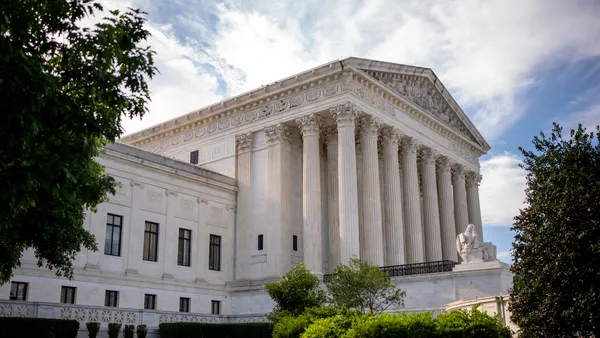Generation Z employees say they’re more likely to consult their employer’s code of conduct than older generations, at 63% versus 49% of baby boomers, but at the same time, they’re also more than twice as likely to agree that bending the rules is acceptable to “get the job done,” according to a Sept 10 report from LRN Corp., an ethics and compliance solutions firm.
Generational differences in how employees use the code of conduct and approach ethical decision-making at work could shift how ethics and compliance professionals build a consistent ethical culture that’s inclusive of different ages and experiences, LRN reported.
“These findings underscore the complexity of fostering strong ethical cultures, particularly as different generations bring varying attitudes, expectations and behaviors to the workplace,” Jim Walton, LRN’s advisory services director, said in a statement. “Codes of conduct play a key role in guiding the development of ethical, compliant workplace cultures, and organizations must think strategically and creatively about how best to bridge the generational gaps as they shape their business culture for the future.”
Leadership gaps appeared as well. For instance, 90% of senior leaders said they believe the code of conduct is followed, which dropped to 81% among middle managers and 69% of front-line employees.
Training specifically focused on the code of conduct seems to help, the report found. In countries where code of conduct training was most prevalent, workers were also most likely to say they engaged “very often” with their code of conduct. Among the 97% of employees in India and 91% of employees in China who reported such training, for example, 47% and 40% said they frequently engaged with the code of conduct. On the other hand, those who were least likely to receive training — 64% in the Netherlands — were the most likely (at 35%) to say they “never” engaged with their code of conduct.
Today’s job seekers say they want ethical employers, according to an Ethisphere report, including factors such as environmental and social impact, governance principles, workplace well-being, a legal compliance track record and structured compliance programs. Most gold-standard companies shared similar characteristics: They had a chief ethics and compliance officer, briefed their board of directors on benchmark progress around goals, and created formal ethics and compliance programs that held C-suite leaders accountable for goals.
To foster ethical decision-making among leaders, companies can implement mentorship and ongoing education at various leadership levels, according to the nonprofit Friends Services Alliance. A formal training program during leadership transitions, plus mentorship when critical decisions arise, can help new leaders act with consistency yet also respond appropriately in the moment when needed.












